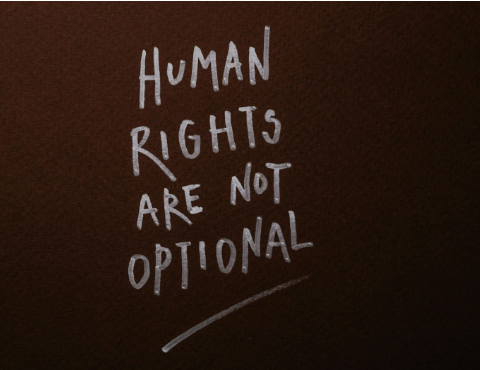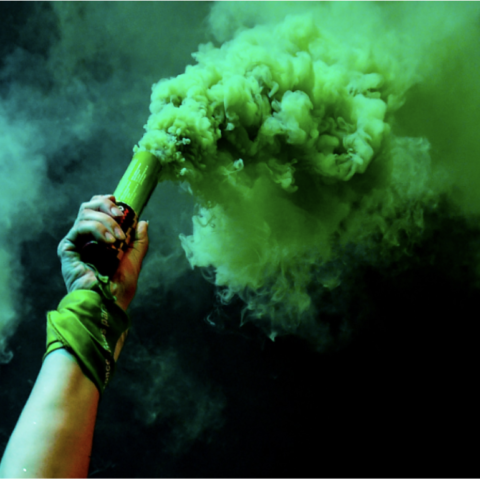When you think of refugees, I bet you don’t think “Slovakia.” At one time, I didn’t. Now, I do. This tiny country serves as the easternmost border of the European Union, and migrants from all around the world – from Iraq, Somalia, and Georgia, among others – venture through the Ukraine, crossing the border to the Slovak Republic to claim asylum.
This summer, I lived there, traveling to Slovakia to work with attorneys that represent asylum-seekers free of charge. Through my work, I met dozens of refugees. Their stories are forever ingrained in my mind – but none more so than that of “A.”
I met A in a foster home for unaccompanied minors, about two hours from Bratislava. It was a terrible place: a fenced-in facility equipped with a ferocious, barking guard dog and burly security men. The staff spoke only Slovak and Russian , but the children spoke primarily English, Arabic, and Persian. The language barriers left the residents of the foster home – children under the age of 18, traveling alone – in utter confusion. Why were they detained here? What was happening? Why couldn’t they leave? My colleagues and I attempted to mollify them, to soothe them, to explain the complex legal issues in which they were embroiled in the most basic of terms. It was during one of these sessions that A and I became friends.
A is from Afghanistan. He left Afghanistan when he was 16, and has waited a year in Slovakia for his application for asylum to be reviewed. According to A, his older brother was killed for helping the U.S. army transport weapons across the country, and his mother and uncle were persecuted for their Christian faith. His mother encouraged him to run – and so, he did.
“I had a good feeling,” he told me. “I was thinking I came to a safe place, and this is European country, and they have safe law for the human rights, like other, every European country telling about the human rights and about the every countries. And I was happy about this!”
But life didn’t get better for A in Europe; in fact, in many ways, it became worse. Despite his faith in human rights in Europe, he faced incarceration and abuse at the hands of the Slovak officials. “When I was entered to the prison, I was shocked,” he said. “After a few days I couldn’t talk well, and I didn’t have really good sleeping until 3 o’clock. All my body have, I don’t know how can I say in English. Really, I didn’t have good feeling, I had stress. And I was telling to them, “No, why I am here, what I have done? I am terrorist, I have killed somebody?”
The scared teenager found himself mistreated by the immigration officials – without explanation and without justice.
“When I was in the police station, they captured me in a bad situation, like I had killed 10 person… The police was not, didn’t have good habit. From one day, from 8 am to 8 pm at night they didn’t give me food, water, nothing. And when I was inside the car I told them I need water. But they said, ‘Shut up.’”
A looked to his attorneys for help. “When I said, heartly, my problem to the lawyer, they said, ‘We can do nothing for you.’ After that I thought, the police have more power in this country, more than human rights, more than the law. What they want to do they can do here.”
“After that I didn’t say nothing, just I was alone, just I was thinking about myself alone. And when I was free, after 3 months, 10 days I went to other camp, I had contact with internet. I send email, but nobody is thinking to see what is going on here. They are indifferent!”
“If they see one hundred persons dying, after that they will think about the human rights.Yes, we are seeing this is not human rights like we have here. “
A escaped from the foster home shortly before I left Slovakia. Though I had some contact with him through Facebook immediately afterwards, I have not heard from him since. The last thing I heard, he was trying to return to Afghanistan – because “Slovakia is not a place for living.” I do not know where he is. I do not know if he is alive or dead.
This interview haunts me. To have seen A struggle under injustice, racism, and poor policy infuriates me. There are so many ways that this senseless tragedy could have been avoided – and I was powerless to stop it. Like A, I believe in human rights; in fact, I have devoted my life to them. I want to believe that they are promoted. I want to believe that people care. And I do believe that injustice is just as wrong when perpetrated against one as it is when perpetrated against “one hundred persons.”
No one needs to be treated as A was. The Slovak government needs to take serious steps to reform its immigration policy in respect to asylum-seekers, and the EU needs to provide pressure upon them to do so. Immigration officials need to be better-trained. Local governments need to make more of an effort at integration of foreigners. And detention centers – and particularly centers where minors are kept – need to be inspected by the UN High Commissioner for Refugees in order to ensure that they are up to standards in safety, security, and services. And individuals – you, me, and everyone else – need to pledge to not be “indifferent” as A claimed we were. We need to translate our concern into action – not only in this case, but in all cases – until human rights are truly universal.
Jacqueline Van De Velde and Kaitlin Marie Ball, a second year law student at the University of Georgia Law School, conducted this interview on June 19, 2012.

